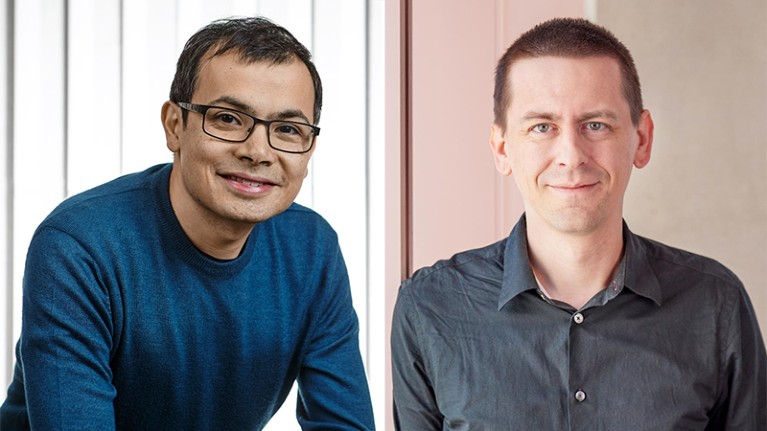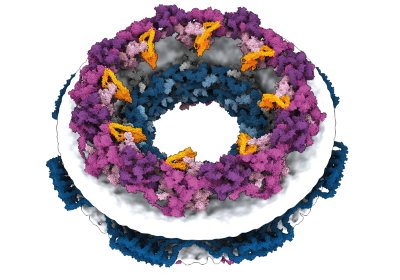AlphaFold developers win US$3-million Breakthrough Prize

Demis Hassabis (left) and John Jumper (right) from DeepMind developed AlphaFold, an AI that can predict the structure of proteins.Credit: Breakthrough Prize
The researchers behind the AlphaFold artificial-intelligence (AI) system have won one of this year’s US$3-million Breakthrough prizes — the most lucrative awards in science. Demis Hassabis and John Jumper, both at DeepMind in London, were recognized for creating the tool that has predicted the 3D structures of almost every known protein on the planet.
“Few discoveries so dramatically alter a field, so rapidly,” says Mohammed AlQuraishi, a computational biologist at Columbia University in New York City. “It’s really changed the practice of structural biology, both computational and experimental.”
The award was one of five Breakthrough prizes — awarded for achievements in life sciences, physics and mathematics — announced on 22 September.
Award-winning AI
AlphaFold was seeded from the success of DeepMind’s AlphaGo. This was the AI that in 2016 beat Lee Sedol, a master of the strategy game Go, in Seoul. “That was the pinnacle of gaming AI, but that was never supposed to be an end in itself,” says Hassabis. “I wanted to build AI to accelerate scientific discovery.” The day after returning from Seoul, the team turned its attention to protein folding.
The system created a stir in November 2020 by winning the biennial CASP contest (Critical Assessment of Structure Prediction), beating around 100 other software programs. An earlier version of AlphaFold had won in 2018, but not convincingly, forcing the team back to the drawing board. “With machine learning, it’s about finding the right balance between the architecture — the constraints imposed by the known underlying science — and the data,” says Jumper.
What’s next for AlphaFold and the AI protein-folding revolution
Since DeepMind released an open-source version of AlphaFold in July 20211, more than half a million researchers have used the machine-learning system, generating thousands of papers. In July this year, DeepMind released 200 million protein structures predicted from amino-acid sequences. So far, the data have been harnessed to tackle problems ranging from antibiotic resistance to crop resilience.
“This is a major breakthrough, not just because they developed the algorithm, but because they made it available and provided all those structures,” says Christine Orengo, a computational biologist at University College London. She adds that the achievement was made possible by a wealth of protein sequence data gathered by the global community.
Hassabis says that he was “stunned” to learn he had won a Breakthrough prize, and Jumper says he “could not believe it was for real”. Hassabis plans to donate some of his winnings to educational programmes aimed at increasing diversity, and also to initiatives supporting schools in rural Nepal.
Sleep science and cellular systems
Another life-sciences Breakthrough prize was awarded jointly to sleep scientists Masashi Yanagisawa at the University of Tsukuba, Japan, and Emmanuel Mignot at Stanford University in Palo…
Read More: AlphaFold developers win US$3-million Breakthrough Prize

